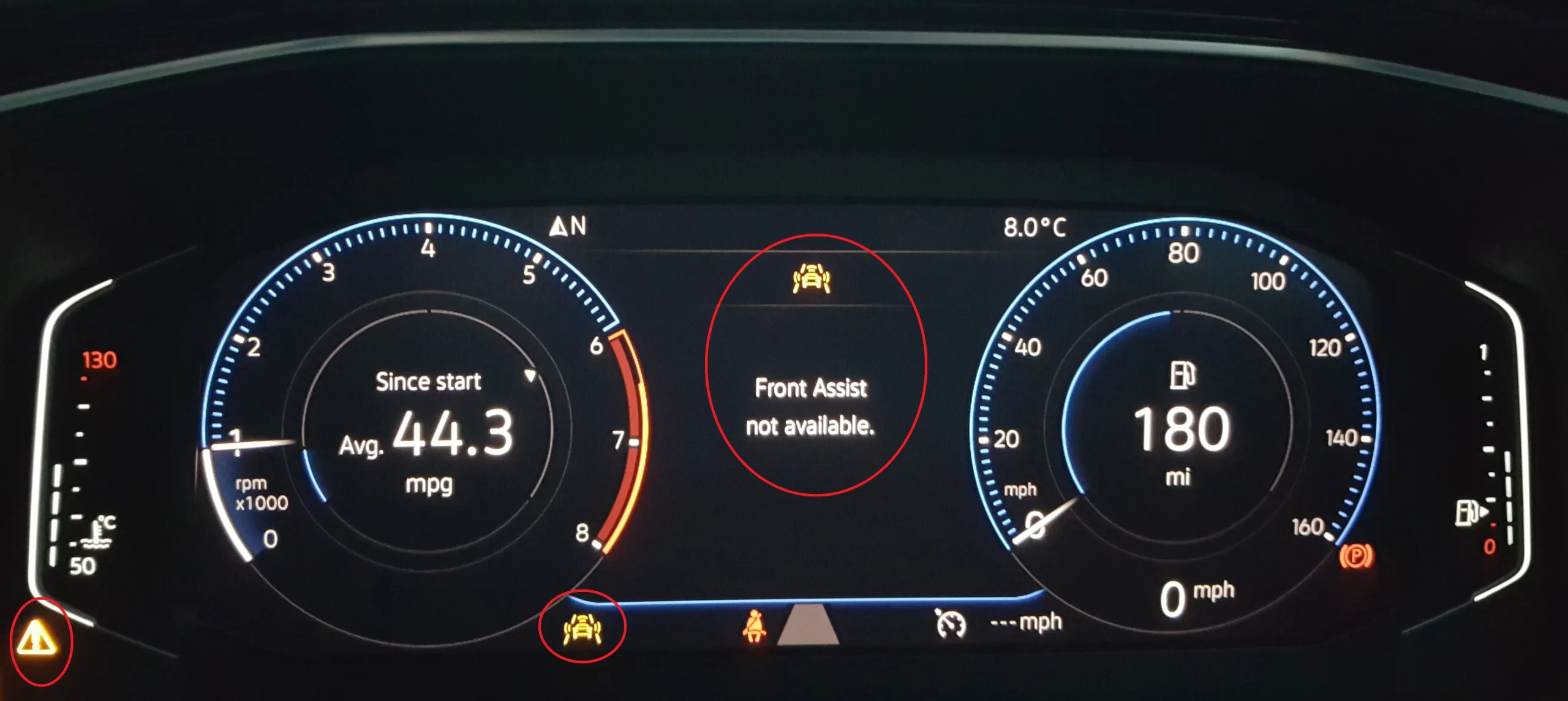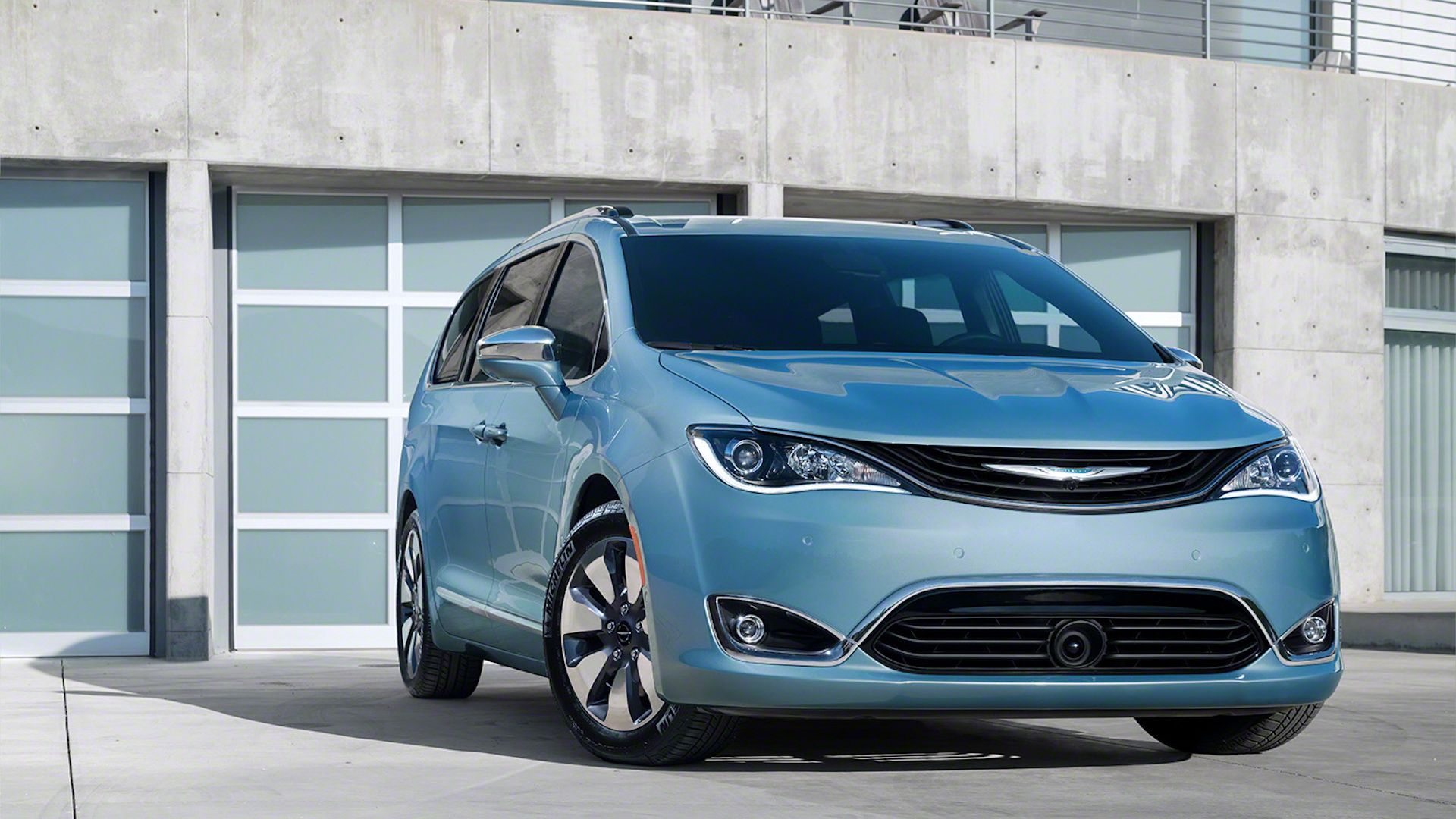Navigating the road of car ownership can come with unexpected bumps, particularly when it comes to transmission troubles.
Owners of the 2012 Chevy Cruze have reported a series of transmission issues that can affect the driving experience.
From erratic shifting to complete transmission failure, these problems are not only inconvenient but can also pose safety concerns.
This article delves into the common transmission woes faced by 2012 Chevy Cruze owners, offering insights into the symptoms, underlying causes, and potential solutions.
Join us as we shift gears and explore the intricacies of these mechanical challenges.
What Are The 2012 Chevy Cruze Transmission Issues?
The 2012 Chevy Cruze has been noted for several transmission issues that owners may encounter. These problems can manifest in various ways and can significantly impact the vehicle’s performance and reliability. They include:
-
Shuddering and Jerking
One of the most frequently reported problems is the vehicle shuddering or jerking, particularly when shifting gears. This can be attributed to a malfunctioning torque converter or degraded transmission fluid that needs replacement.
-
Transmission Fluid Leaks
Another issue is the leaking of transmission fluid, which can lead to serious transmission damage if not addressed promptly. Causes of leaks can include damaged seals, cracked transmission housing, or loose bolts on the transmission pan.
-
Gear Slipping
Gear slipping is a condition where the transmission unexpectedly slips out of gear while driving, often resulting in a loss of acceleration and a potential safety hazard. This can be due to worn clutch plates, a faulty valve body, or low levels of transmission fluid.
-
Erratic Shifting
Some drivers have experienced erratic shifting behavior, where the transmission may shift too early or too late, causing the engine to rev at inappropriate times. This can be due to sensor issues or software that requires updating.
-
Loss of Gears
In more severe cases, the transmission may lose certain gears, including reverse or forward gears, which can render the vehicle inoperable.
-
Overheating
Transmission overheating can occur, especially under heavy loads or during extended driving, which can lead to additional wear and potential failure if not managed properly.
Related Post: [SOLVED] Why Does Chevy Cruze Key Stuck In Ignition No Power?
How Do 2012 Chevy Cruze Transmission Problems Affect Driving Safety?
Transmission issues in the 2012 Chevy Cruze can have a significant impact on driving safety. This is how these problems can affect drivers:
-
Loss of Propulsion
If the transmission fails while driving, it can lead to a sudden loss of propulsion, which can be particularly dangerous on highways or in heavy traffic, as it may prevent the driver from maintaining or controlling speed.
-
Unexpected Vehicle Movement
Problems like gear slippage or delayed engagement could cause the car to move unpredictably, increasing the risk of accidents, especially in stop-and-go traffic or when navigating intersections.
-
Difficulty in Controlling Vehicle Speed
Erratic shifting and gear slipping can make it difficult for drivers to control the speed of their vehicle, potentially leading to unsafe situations where the car accelerates or decelerates unexpectedly.
-
Increased Stopping Distances
If the transmission is not engaging properly, it may take longer for the vehicle to come to a complete stop, which could result in rear-end collisions or other types of accidents.
-
Distraction and Stress
Dealing with transmission issues can be distracting for drivers, who may need to focus more on the behavior of their vehicle than on the road, leading to increased stress and a higher likelihood of driver error.
-
Reduced Maneuverability
A malfunctioning transmission can impair the driver’s ability to maneuver the car effectively, particularly in emergency situations where quick acceleration or deceleration is required.

What Causes Transmission Failures In The 2012 Chevy Cruze?
Transmission failures in the 2012 Chevy Cruze can be attributed to a variety of factors, each contributing to the overall reliability issues that some owners have experienced. These are the causes:
-
Defective Transmission Components
Some Cruze models may have been built with defective parts, such as faulty clutches or torque converters, leading to premature wear and eventual failure.
-
Improper Maintenance
Lack of regular maintenance, such as not changing the transmission fluid at recommended intervals, can lead to a buildup of contaminants and excessive wear.
-
Transmission Fluid Issues
Using incorrect or low-quality transmission fluid can cause inadequate lubrication and cooling, resulting in overheating and damage to internal components.
-
Faulty Transmission Control Module
A malfunctioning transmission control module can lead to incorrect shifting patterns, which can strain the transmission and cause early failure.
-
Worn-Out Clutch or Pressure Plate
Manual transmissions in particular can suffer from a worn-out clutch or pressure plate, making it difficult to shift gears and potentially leading to transmission slipping.
-
Low Fluid Level
A low level of transmission fluid due to leaks or neglect can cause the transmission to overheat and components to seize up.
-
Overloading the Vehicle
Carrying loads heavier than the vehicle’s capacity or towing beyond its limit can put additional stress on the transmission, leading to potential failure.
Can 2012 Chevy Cruze Transmission Issues Be Prevented?
Preventing transmission issues in the 2012 Chevy Cruze involves a combination of regular maintenance, proper use, and awareness of the vehicle’s performance. These preventative measures include:
-
Regular Maintenance
Adhering to the manufacturer’s recommended maintenance schedule is crucial. This includes regular checks and changes of the transmission fluid to ensure it remains clean and at the correct level.
-
Use of Correct Fluids
Always use the type of transmission fluid specified for the 2012 Chevy Cruze. Using the wrong fluid can cause damage and lead to premature transmission failure.
-
Timely Repairs
Address any transmission symptoms, such as unusual noises or shifting behaviors, promptly. Early detection and repair can prevent minor issues from escalating into major failures.
-
Avoid Overloading
Do not exceed the vehicle’s weight capacity or tow more than the recommended limit, as this puts additional strain on the transmission and can lead to overheating and damage.
-
Gentle Driving Habits
Avoid aggressive driving behaviors like sudden starts and stops, which can wear out transmission components more quickly.
-
Cooling System Maintenance
Ensure the transmission’s cooling system is functioning properly, as overheating is a common cause of transmission problems.
What Are The Repair Options For 2012 Chevy Cruze Transmission Defects?
Repair options for transmission defects in the 2012 Chevy Cruze can vary depending on the severity and nature of the issue. The solutions are:
-
Transmission Fluid and Filter Change
One of the most basic repairs is changing the transmission fluid and filter. This can help resolve issues caused by contaminated or old fluid, which can impair the transmission’s performance.
-
Damaged Part Replacement
Specific components within the transmission, such as solenoids, the torque converter, or clutch plates, may need to be replaced if they are damaged or worn out.
-
Transmission System Flushing
Flushing the transmission system can remove debris and sludge that has accumulated over time, which can improve the performance and extend the life of the transmission.
-
Software Updates
In some cases, updating the software of the transmission control module can resolve shifting problems and improve the transmission’s operation.
-
Complete Transmission Overhaul or Rebuild
If the transmission has significant damage, a complete overhaul or rebuild may be necessary. This involves disassembling the transmission, cleaning all parts, replacing worn components, and reassembling it.
-
Transmission Replacement
In the most severe cases, where the transmission is beyond repair, replacing the entire transmission unit may be the only option.
How Does The 2012 Chevy Cruze Compare To Other Models In-Transmission Reliability?
The 2012 Chevy Cruze’s transmission reliability, when compared to other models, has been a topic of discussion among automotive experts and owners.
-
Transmission Redesign
The 2012 model year saw a redesign of the automatic transmission (6T30/40), which reportedly improved its reliability over the problematic 2011 model.
-
Common Issues
Despite improvements, the 2012 Cruze still faced common issues such as transmission failure and engine problems, which were prevalent in the 2011-2015 model years.
-
Reliability Ratings
Some sources have rated the Cruze, particularly the first and second-generation models, as less reliable compared to other compact cars, citing transmission and engine problems as significant concerns.
-
Owner Feedback
Owner reports suggest that with proper maintenance, including regular fluid changes at 45k intervals, the 2012+ Cruze models can achieve lifespans of 150K+ miles.
-
Comparison with Other Models
While the 2012 Cruze had its share of issues, it’s important to note that transmission reliability can vary widely across different makes and models. Some competitors may have better track records, while others might struggle with their own set of transmission problems.
What Is The Most Common Problem With The 2012 Chevy Cruze?
The most common problem reported by owners of the 2012 Chevy Cruze is related to the engine and engine cooling system. Issues range from sputtering and stalling to more serious concerns like valve cover problems and faulty engine sensors. Owners have reported that the engine may stall when coming to a stop or when accelerating from a stop, and these stalls can occur without triggering any diagnostic trouble codes, making them difficult to diagnose and resolve.
Another prevalent issue is related to the vehicle’s electrical system, with complaints about malfunctioning gauges, radio, and air conditioning displays. The automatic transmission also presents problems, including sluggish performance and coolant leaks. These issues are significant as they can affect the vehicle’s performance and reliability
What Year Did the Chevy Cruze Have Transmission Problems?
The Chevy Cruze has experienced transmission problems across several model years, with the most notable issues reported in the first-generation models.
2011 Model Year: The 2011 Chevy Cruze is often cited as having significant transmission problems, with owners reporting failures at an average mileage of around 65,000 miles.
2012 Model Year: Transmission issues continued into the 2012 model year, with similar problems as the 2011 model, including transmission failure and an average repair cost of around $3,400 at approximately 82,000 miles.
2013 Model Year: The 2013 model also faced transmission problems, although the specific issues and their severity varied among individual vehicles.
2014 and Beyond While the 2014 model year saw some improvements, there were still reports of the transmission not shifting properly, indicating that the issue was not entirely resolved.
What Kind Of Transmission Does A 2012 Chevy Cruze Have?
The 2012 Chevy Cruze came equipped with two main types of transmissions:
Automatic Transmission
The majority of 2012 Cruze models were fitted with a six-speed automatic transmission. This transmission was designed to offer a balance between performance and fuel efficiency, providing smooth gear shifts and a comfortable driving experience.
Manual Transmission
For those who prefer a more hands-on driving style, the 2012 Cruze was also available with a six-speed manual transmission. This option gave drivers more control over the vehicle’s performance and was typically found in the Eco and LS models.
What Year Is The Most Reliable Chevy Cruze?
When considering the reliability of the Chevy Cruze, it’s important to look at the model years that have shown to be most dependable. The most reliable years for the Chevy Cruze are generally later in its production run.
2017 and 2018 Models: Both the 2017 and 2018 models of the Chevy Cruze are noted for their reliability. These years come with newer technology and safety features, making them a good choice for those seeking a balance between modern amenities and proven dependability. However, it’s worth noting that the 2017 model did have some reports of issues with cracked pistons, which could occur at lower mileage.
2016 Model: The 2016 Chevy Cruze is also considered a reliable option. While it has had some reports of engine problems and electrical issues, these problems are relatively minor compared to the issues found in earlier model years.
2014 Model: The 2014 Chevy Cruze has received a 4 out of 5 score for reliability from J.D. Power, indicating a strong performance in terms of dependability.
Is The Chevy Cruze A CVT Transmission?
No, the Chevy Cruze does not come with a CVT (Continuously Variable Transmission). The 2012 Chevy Cruze was equipped with either a 6-speed automatic transmission or a 6-speed manual transmission. These transmissions are geared, unlike a CVT, which does not use gears but rather a system of pulleys and belts to provide a continuous range of effective gear ratios.
How Often Should You Change Transmission Fluid, Chevy Cruze?
For the Chevy Cruze, the transmission fluid change interval can depend on your driving habits and the conditions in which you drive. Generally, for an automatic transmission, it’s recommended to change the fluid every 45,000 miles. However, if you frequently drive in severe conditions, such as towing or carrying heavy loads, in extremely hot or cold climates, or in stop-and-go traffic, you might need to change the fluid more often.
For a manual transmission, the interval is typically longer, and the fluid should be changed approximately every 60,000 miles. It’s important to consult your vehicle’s owner’s manual for the manufacturer’s specific recommendations, as these intervals can vary based on the exact model year and type of transmission in your Cruze.
Regularly changing the transmission fluid is crucial because it lubricates the moving parts within the transmission, helps to dissipate heat, and removes wear particles and other contaminants from the system. Fresh fluid can help maintain the transmission’s performance and extend its life.

Is There A Recall On Chevy Cruze Transmission?
Yes, there have been recalls related to the transmission on certain Chevy Cruze models. For instance, a recall was issued for some 2011 Chevrolet Cruze vehicles due to an issue with the automatic transmission that could cause the car to roll away when parked. Another recall was related to the transmission shift cable adjuster which may disengage from the transmission shift lever. Additionally, there was a recall concerning the start-stop accumulator that may have missing bolts, affecting the 2018 and 2019 Chevy Cruze models.
How Long Does A 2012 Chevrolet Cruze Ls Last?
The lifespan of a 2012 Chevrolet Cruze LS can vary based on several factors, including maintenance, driving habits, and environmental conditions. However, with proper care and regular servicing, the 2012 Chevrolet Cruze LS is known to last between 150,000 to 200,000 miles. This translates to approximately 10 to 13 years of service, assuming an average annual mileage of 15,000 miles. It’s also worth noting that some owners have reported their Cruzes reaching over 250,000 miles with diligent preventive maintenance. To maximize the longevity of your Cruze, it’s crucial to adhere to the recommended maintenance schedule, address any issues promptly, and drive the vehicle under normal conditions.
What Are The Engine Problems With The 2012 Chevy Cruze?
The 2012 Chevy Cruze has been associated with several engine problems:
-
Loss of Power
Homeowners have experienced a loss of power while driving, which can be particularly dangerous during acceleration or while on the highway.
-
Oil Leaks
Oil leaks are another common problem, which can lead to engine damage if the oil level becomes too low.
-
Cracked Valve Cover
A cracked valve cover has been reported, which can cause oil to leak and potentially lead to engine misfires or other issues.
-
Jerky or Erratic Acceleration
Owners have reported jerky or erratic acceleration, which can be due to a variety of engine issues, including faulty sensors or problems with the fuel system.
-
Stalling
There have been instances of the Cruze stalling, particularly when coming to a stop or when accelerating from a stop. This can occur without triggering any diagnostic trouble codes, making it difficult to diagnose.
-
Turbo Failure
Some models equipped with a turbocharged engine have experienced turbo failures, which can significantly affect the vehicle’s performance.
-
Faulty Engine Sensors
Faulty sensors, particularly in diesel models, have been known to cause issues, although they can also occur in gasoline engines.
-
Valve Cover Issues
Problems with the valve cover, which may require a rebuild of the cover assembly, have been noted as a significant issue.
Conclusion
The journey of the 2012 Chevy Cruze has been marked by its share of transmission tribulations.
Owners have faced a spectrum of issues, from minor annoyances to significant malfunctions that could impact their driving experience and safety.
While these challenges are not unique to the Cruze, they serve as a reminder of the importance of regular vehicle maintenance and the value of understanding your car’s needs.
By staying informed and proactive, drivers can navigate the road ahead with confidence, ensuring that their 2012 Chevy Cruze continues to be a reliable companion for all of life’s adventures.
Remember, knowledge is the key to keeping those wheels turning smoothly.




